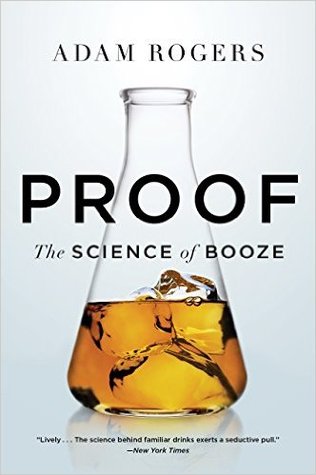More on this book
Community
Kindle Notes & Highlights
It seems like a small transaction—a guy walks into a bar, right?—but it is the fulcrum on which this book rests, and it is the single most important event in human history. It happens thousands of times a day around the world, maybe millions, yet it is the culmination of human achievement, of human science and apprehension of the natural and technical world. Some archaeologists and anthropologists have argued that the production of beer induced human beings to settle down and develop permanent agriculture—to literally put down roots and cultivate grains instead of roam nomadically. The
...more
It was also home to a giant statue of the god Serapis positioned so that, on a certain day of the year, a beam of light would land right on his lips as though he were getting a kiss from the sun. The temple also had a mechanical “sunrise,” driven by magnets. Alexandrians loved these kinds of sophisticated automata, using them in temples and parades as both common decorations and to conceal and perpetuate religious mysteries. A man named Hero was the best-known maker of the devices. His clockwork designs, driven by heat, pressure, gravity, and magnets, included temple doors that opened only
...more
At 95.57 percent alcohol, the vapor has the same ethanol concentration as the liquid, and you can’t squeeze any more out. It’s called the azeotropic limit, and it’s the upper bound on how potent any spirit can ever be: 194.4 proof. (“Proof” is an old word when it comes to alcohol content; in the United States it’s just twice the percent alcohol-by-volume. “Eighty proof” is 40 percent ABV. In the United Kingdom it has a slightly different calculus—100 proof is 57.15 percent ABV, a definition that comes from the days when British navy rations included rum for sailors. The sailors would mix
...more
Our taste in drinks may have little or nothing to do with how we taste drinks.
In short, our state of mind affects what alcohol does to us, just as alcohol affects our state of mind.
You, my friend, have a hangover. Scientists have a more inscrutable name for it: veisalgia, from the Greek word for “pain,” algia, and kveis, a Norwegian word meaning “uneasiness following debauchery.” That sounds about right.
And there’s Henley’s Twentieth Century Formulas, Recipes, and Processes, a collection of trade secrets for making just about anything, from gasoline to soda pop. “If you were to wash ashore on an island with that,” Winters says, talking past an unlit Partagas, “you could restart civilization.”


